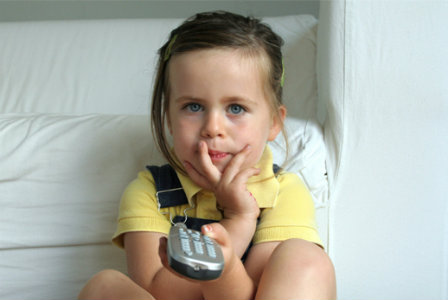
Do the media really function as a parent? At first glance, this question seems absurd. Parents do provide the basics for children: Shelter, food and love. Don’t they?
When the media
is the parent
Contributed by Dr. George Drinka
After years in child and adolescent psychiatry, I began to consider this question since many kids insisted on telling me in therapy about media productions that touched them deeply, in addition to describing family or peer conflicts. Slowly I began to see these media creations as virtual family members affecting in unexplored ways family structure and children’s inner lives.
Media's role in children's lives
In my quest to learn more about the media’s expanding place in children’s lives, I examined the social science literature on the subject. Perhaps not surprisingly, this study deepened my fascination with the subject and strengthened my core ideas. This literature began as a trickle in the 1950s and has grown into a steady stream of articles. Social scientists have undertaken vast studies and expressed serious concerns. Much of the literature has focused on violence, fear, glamorization of alcohol consumption, earlier sexual activity, low self-esteem and obesity. But the list of concerns keeps growing. While a few areas of positive impact have been detected, like enhanced eye-hand coordination in kids who played video games incessantly, other studies have found that these same children often experience lower academic performance.
The literature, however, left certain important questions unanswered: How did the media have these effects? What were the intermediary steps? And the scientific defenders of the media always returned to the argument that, while one could correlate media over-consumption with these problems, a causal link was not clear. What was cause, and what merely correlation?
Areas of uncertainty
To shed light on these two areas of uncertainty — causation versus correlation and the intermediary steps — I set out to pen case studies of children and adolescents from my practice that had become overly absorbed in media creations, and deeply influenced by them.
The case studies in my upcoming book, When the Media Is the Parent, work to fill these two gaps in the social science literature. Via this approach, I attempt to narrate how children — especially vulnerable ones — allow, in fact invite, the media into their inner lives. In one case, you’ll meet a boy living in a tumultuous home who turned to incessant playing of Grand Theft Auto to cope. In another, you’ll meet a girl sexually molested by an uncle as a toddler, which memory she buried. Later she discovered in BDSM websites a kind of sex ed tool. In a third, I describe a teen boy stressed with cancer and warring parents who turns to vampire video games to embody his personal turmoil.
Beyond distraction
The book also underscores a crucial point: The media has become the parent for too many American children, not just troubled ones. How does this broader cultural phenomenon work? When overworked parents unthinkingly hand over their children to the media for distraction and babysitting, the media obligingly steps in. Seemingly it sets out to entertain, but in truth it elbows aside the parent in terms of role modeling, value development, and storytelling, traditionally the domain of actual parents.
While some may argue that my cases are outliers, in truth the principles culled from my cases apply to millions of American families that approximate the norm. Most children suffer from vulnerabilities and many internally harbor deep concerns about how they measure up physically, socially and academically in the wide world. The media seems to offer them answers.
Dr. George Drinka is a child and adolescent psychiatrist and the author of The Birth of Neurosis: Myth, Malady and the Victorians . His new book, When the Media Is the Parent, is a culmination of his work with children, his scholarly study of works on the media and American cultural history, and his dedication to writing stories that reveal the humanity in us all.
More about kids and the media
Real Moms Debate: How much TV is reasonable for kids?
Can you keep the media from being a bad influence on your child?
Keeping kids safe in an online world